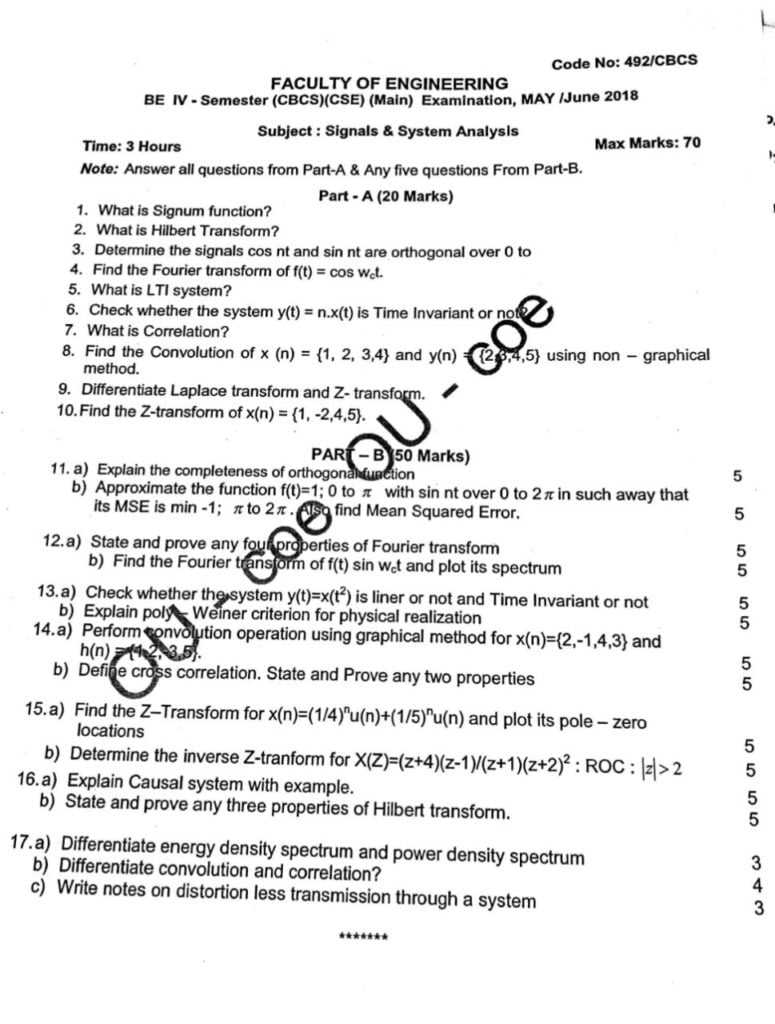
Syllabus
UNIT- I
Signal Analysis: Analogy between vectors and signals, Orthogonal signal space, Signal approximation using orthogonal functions, Mean square error, Closed or complete set of orthogonal functions, Orthogonality in complex functions, Exponential and sinusoidal signals, Concepts of Impulse function, Unit step function, Signum function.
UNIT-II
Fourier Transform: Deriving Fourier transform from Fourier series, Fourier transform of arbitrary signal, Fourier transform of standard signals, Fourier transform of periodic signals, properties of Fourier transforms, Fourier transforms involving impulse function and Signum function. Introduction to Hilbert Transform.
UNIT-III
Signal Transmission Through Linear Systems: Linear system, impulse response, Response of a linear system, Linear time invariant (LTI) system, Linear time variant (LTV) system, Transfer function of a LTI system. Filter characteristics of linear systems. Distortion less transmission through a system, Signal bandwidth, system bandwidth, Ideal LPF, HPF and BPF characteristics, Causality and Poly- Wiener criterion for physical realization, relationship between bandwidth and rise time.
UNIT–IV
Convolution & Correlation of Signals: Concept of convolution in time domain and frequency domain, Graphical representation of convolution, Convolution property of Fourier transforms. Cross correlation and auto correlation of functions, properties of correlation function, Energy density spectrum, Parseval’s theorem, Power density spectrum, Relation between auto correlation function and energy/power spectral density function. Relation between convolution and correlation, Detection of periodic signals in the presence of noise by correlation, Extraction of signal from noise by filtering.
UNIT- V
Z-Transform: Fundamental difference between continuous and discrete time signals, discrete time signal representation using complex exponential and sinusoidal components, Periodicity of discrete time using complex exponential signal, Concept of Z- Transform of a discrete sequence. Distinction between Laplace, Fourier and Z transforms. Region of convergence in Z-Transform, constraints on ROC for various classes of signals, Inverse Z- transform, properties of Z-transforms.
